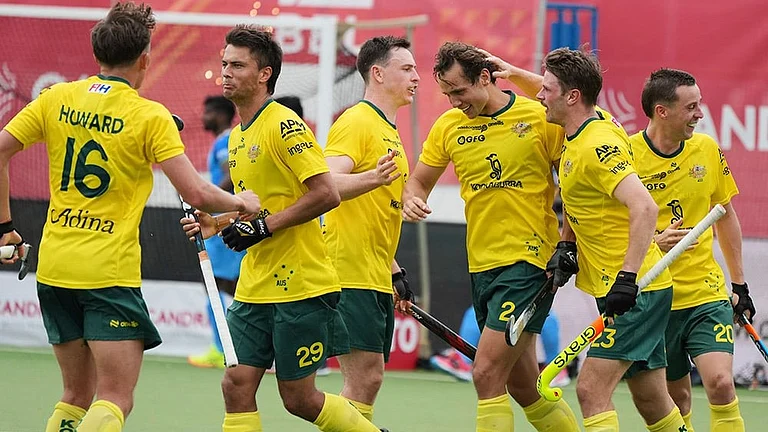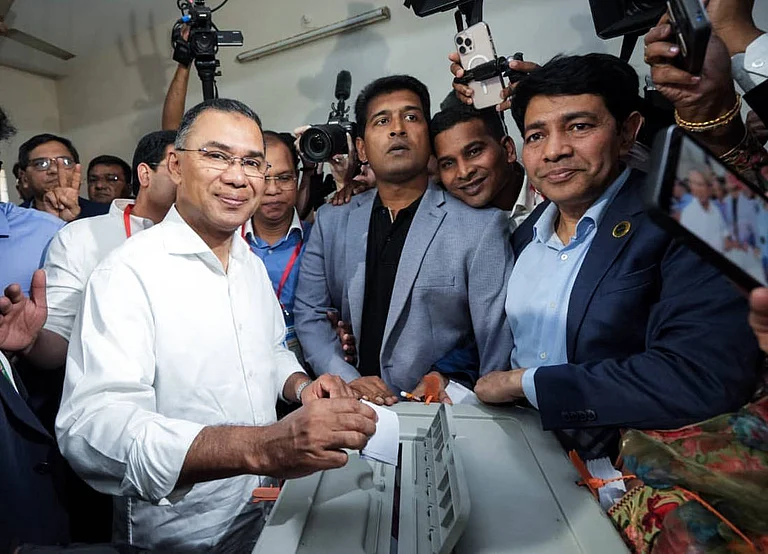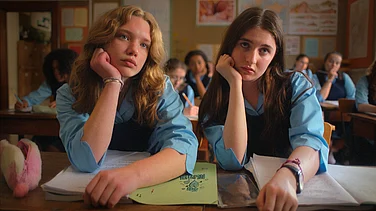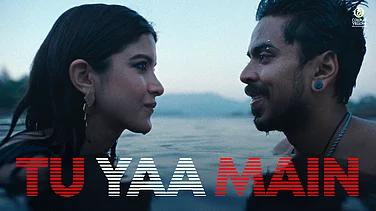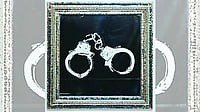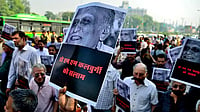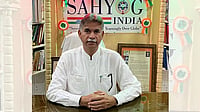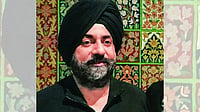Sitting on a charpoy in his humble house, with his back pressed against a bundle of rolled quilt, Bant Singh at first appears to have no arms and legs. And then he unfolds his almost defunct right leg. While its broken tibia hasn’t healed in the past 20 years, the forefoot that gangrene has left almost black has only partially damaged first and second toes. On our request, his eyes light up and he starts singing a song about a daughter asking her father for a revolver in dowry. The opening lines are:
Na main tere kolun mangan gainaiyan de lapp be
Ik bas tu nibha de thee da kaul baabla
Mere daaj bich, mere daaj bich de dein pastol baabla!
(I don’t ask for a handful of jewellery,
Just fulfil this promise with your daughter,
Please give me a gun in the dowry)
Bant was brutally attacked by a group of Jatt youths a month after his elder daughter, then a minor, was gangraped in 2002. Even though he was threatened and offered money to keep quiet, he insisted on legal action against the culprits. His defiance was seen as a threat to the feudal caste hierarchy, and he was attacked as punishment. The attackers left thinking he was dead. At the local hospital, he was denied medical care. By the time help arrived at the PGI Chandigarh, gangrene had set in. Consequently, his two arms and a leg plus three toes of the right foot had to be amputated.
The wheelchair-bound Dalit resistance icon has been regaling audience with his fiery songs since he was 10. Yet, unlike the rich Punjabi pop stars of largely upper caste Jatt identity, Bant, despite surviving tuberculosis and Covid, is now struggling with diabetes, dwindling vision and financial distress. He doesn’t have enough funds to get an eye surgery. He also needs two people to constantly look after him. With the meagre Rs 1,500 monthly pension that the Punjab government provides to the disabled, he finds it difficult to run his household. The outside walls of his house remain unplastered, and a small car he had bought for Rs 20,000 in 2014 is gathering rust under the portico. “Earlier, my son would take me to public functions and we could earn something. That’s no longer possible as the car breaks down frequently and water seeps in when it rains,” he says, as his wife, Harbans Kaur, holds a cup of tea to his lips.
While he has married off three sons and his eldest daughter, he lives along with his wife, youngest son, Jagmeet Parocha, and youngest daughter Hardeep Kaur. Disillusioned with the CPI Marxist-Leninist (CPI-ML) Liberation party, he joined Aam Aadmi Party (AAP) some five years ago. “Chief Minister Bhagwant Mann too was an artiste once. His government should provide jobs to my youngest son, Jagmeet, and my daughter Hardeep. Both of them have studied up to senior secondary level,” he says, adding that he has campaigned for the party during the assembly elections.
Like the majority of Dalits in Punjab, his family never owned any farmland. Adjacent to their house, they have a small plot, but it has been encroached by neighbours. To grow fodder for their four goats and a buffalo, which stopped yielding milk four months ago, they have rented a farm. “Unlike other Dalits, I never worked as a farm hand on the land of upper caste villagers. I have always sung to make people aware of social, economic and political injustices,” he says, adding, “My idea of work was viewed as a revolt. How could someone like me live off singing, instead of working on their farms for a pittance?” Bant says he would rather sell toys and bangles at fairs to augment his earnings than work in farms of the upper castes. When surgeons informed Bant that they had to amputate both his arms and one leg, “I told them ‘Please don’t slit my throat. I still want to sing. You can chop off my limbs.’ A few days after the amputation, I was singing in the recovery ward, to the utter amazement of the doctors,” he recollects.
Before starting to sing a ballad on Bhagat Singh, he asks us to help him tie a red turban, which he says commemorates the revolutionary freedom fighter. Better known as ‘Singing Torso’, Bant goes on to sing songs about landless labourers and poverty-stricken farmers. He has been singing fiery songs written by Dalit poets like Sant Ram Udaasi, who was a school teacher. Referring to misogynistic Punjabi pop songs, he says, “This filth began to spread 20-25 years ago. They have ruined Punjab and its cultural heritage. Look at how they portray women.” Sociologists and musicians in Punjab describe the use of Jatt identity in pop songs as denoting a hardworking and self-sufficient rural man, not signifying caste. It’s true that even Dalits dance to these infectious tracks. But when it comes to “roti-beti ka rishta (breaking bread together and offering daughters in marriage)”, this brotherhood is overshadowed by caste chauvinism. Although Bant believes his legal fight against Jatt hegemony did create some awareness, many social realities remain unchanged for Dalits in Punjab.
Things are looking up
“Please mention the names of Jasbir Singh and his wife Sukhwinder Kaur. At a time when I felt abandoned, they reached out to financially help me. They even brought clothes for us,” Bant tells us, at the start of our conversation. Bant had met Jasbir at a function held to commemorate Baba Jeevan Singh at Moga on February 26. Soon, Jasbir and his wife paid him a visit at his home in village Burj Jhabbar at Punjab’s Mansa district. “I felt quite embarrassed to host them. They had come all the way from Delhi,” says Bant, while narrating minute details of the couple’s brief stay. “I don’t have any creature comforts. At night, they slept on charpoys in the courtyard, under the open sky,” he continues, adding that he only managed to complete building his house after his plight was highlighted in the media, and well-wishers came forward with help.
Nirupama Dutt, a noted poet, author and journalist, has written a book on Bant Singh, called The Ballad of Bant Singh. Speaking to Outlook, she picks up her English translation of the memoirs of another Punjabi Dalit poet: Poet of the Revolution: The Memoir of Lal Singh Dil, and quotes him: “For us, trees don’t bear fruit. For us, flowers don’t bloom. For us, there is no spring. For us, there is no revolution.”
The experience of Bant and his daughter got unprecedented media attention, converting him into a Dalit icon, says Nirupama. “The Jatt boys got punished. Raping a Dalit girl is seen a coming-of-age act for Jatt boys in Punjab’s Malwa. They later resolve the matter by paying off the victim’s family a meagre Rs 2,000-5,000,” she says, adding that the extent to which landless Dalits economically depend on Jatts for survival is such that they have no option but to keep quiet. “But here was a man who fought back.”
Describing Bant as a leading living Dalit icon, Nirupama says, “He is facing financial hardships as promises made by previous governments—a five acre plot, and a government job for one of his children—never materialised.” Talking about Bant’s disenchantment with left parties, she says, “There too, the leadership comprises Jatts. Of course, they stood by him during his hospitalisation. But he was also often snubbed after his public speeches.” On Bant’s association with AAP, says Nirupama, “When former editor, Kanwar Sandhu contested election as AAP candidate from Kharar constituency, the party needed a Dalit face. But during the last election, the party’s Mansa candidate didn’t even allow Bant Singh at his rallies.” That’s how difficult changing grassroots realities are.
(This appeared in the print edition as "Ballad of Bravery")







